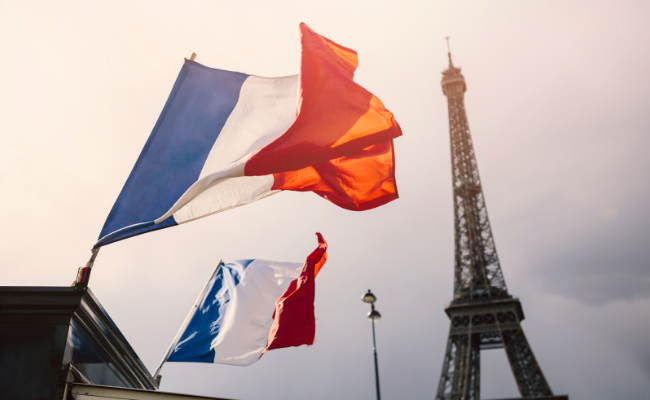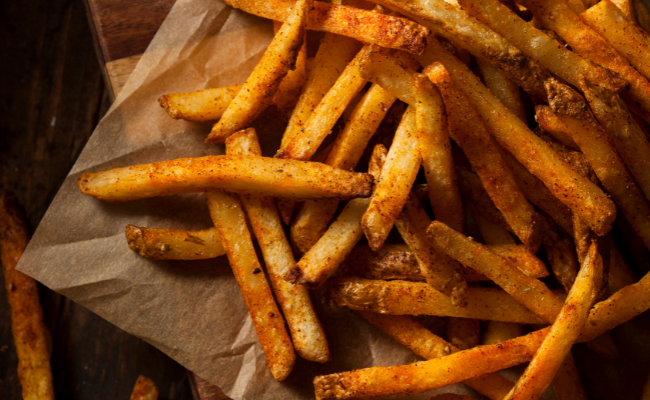Chips vs. Fries: What’s the Difference?
There is no limitation to what true foodies snack on; we’re good as long as the food slaps. Chips vs. fries (aka French fries) are two of the most popular comparisons in potato-based snack foods in the world today.
With how similar both look, it is almost impossible to tell the difference. You will find that most people refer to French fries as chips, and to date, I have never understood the difference.
Aside from their similarities, chips, and fries have several key differences. This article will teach us about their differences, origins, unique textures, flavors, and cooking methods.
What makes chips different from fries?
At first look, it’s not easy to tell the difference because chips and fries are identical. However, certain factors would help you identify one from the other:
Cut: The difference between chips and fries is their cuts. Chips are cut into thick, rectangular slices, while fries have thin and long sticks cut.
Texture: chips are crispy and more crunchy in texture because it is fried twice. Fries are fried just once, making them softer on the inside and tender in texture.
Seasoning: the seasoning for chips is usually light. A little salt is perfect. While the seasoning for fries is salt together with other spices like; garlic powder, paprika, and black pepper.
Serving: chips are best served as a snack, while fries are mainly a side dish to a main meal.
Are French Fries from France?
French fries are not French, although the name might suggest otherwise. However, french fries didn’t originate from France. The origin can go back to World War 1 in Belgium.
This dish originated in Belgium in the late 1600s. According to Belgian history, residents of a city called Namur loved to eat fried fish.
However, fishing was impossible during winter when the local river froze, so they turned to the root plant (potatoes) as an alternative food source. And just like they did when preparing fish, they would slice and fry the potatoes.
Still, BelgiumSome historians questioned this story of the origin of French fries stood their ground that they created the dish and then petitioned UNESCO to include it in Belgium’s list of cultural treasures.
So why do we say “French” before fries? The term french fries refers to the method of preparing the dish and not has nothing to do with its origin.
“Frenching” is when food is cut in a particular way to ensure it is evenly cooked, more like a julienne cut that aims to show all sides of the item, such as potatoes, to the heat of an oven or fryer.
Technically we should be calling it “French fried potatoes.”
How French Fries Became Popular in the US and other Countries
History shows that during World War 1, Some American soldiers had their stations in Belgium at about the same time the villagers started frying potatoes as an alternative to fish. It was the first time an American would taste the fries.
In the 18th century, a manuscript drafted by President Thomas Jefferson described a dish called ‘Pommes de terre frites en petites tranches,’ which translates to Potatoes deep-fried while raw in small slices.
This recipe has since become a key player in most American dishes. According to South Florida Reporter, the average American eats almost 30 pounds of French fries yearly.
Fun Fact; there is a day assigned to the snack known as the “National French Fry Day” is celebrated nationwide on the 13th of July each year.
Cooks now prepare them in many different cuts like; waffles, curly, and crinkle cuts. You should check out places like Chick-fil-A, Shake Shack, or Jack in the Box.
Why were French Fries Changed to Freedom Fries?
In early 2003, the name French fries was changed to Freedom fries by the Republican Chairman, Bob Ney, in a North Carolina cafeteria.
This move resulted from a political feud between France and the United States over France’s refusal to join the United States in an invasion of Iraq.
Neal Rowland, who owned the diner then, said, “Since the French are backing down, french fries and French everything needs to be banned.”
Bob further renamed the item on the menu of three congressional cafeterias. However, the change was reversed after he resigned as chairman in 2006.
Final Thoughts
Irrespective of its name, origin, or style of preparation, chips and fries are prevalent potato snacks. Both have unique flavors, textures, and cooking methods that appeal to different people.
While chips are usually thicker and crispier, fries are thin and softer. Chips are often seasoned with spices and flavorings, while food chains and restaurants typically serve fries with salt and ketchup.
Ultimately, the choice between chips and fries is a matter of personal preference, and both are delicious in their way.



